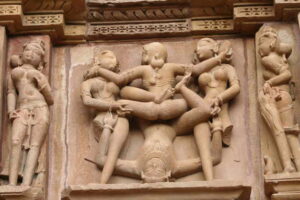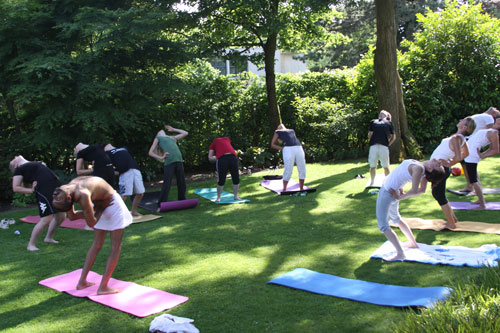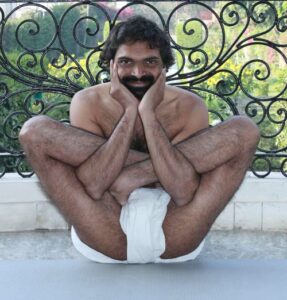Yesterday I wrote about the question whether yoga teachers should correct their students or not. I explained why I and along with me Yashendu and Ramona, too, act according to the principle ‘as little as possible, as much as necessary’. Apart from corrections, there is another thing which many yoga teachers do a lot but which we usually simply don’t: using the Sanskrit terms of the postures and basically making it all more difficult than it is.
Dear yoga teachers, I know you have learned all of these Sanskrit terms for the asanas, the kriyas, the mudras and more in your yoga teacher training. You have probably spent evenings of trying to get these strange-sounding terms into your mind, trying to pronounce them correctly although your tongue sometimes just doesn’t seem able to form those sounds. You want to use them as well, pass this knowledge on to your students and that’s how you generously say these words in your classes as well.
Have you ever thought that this may actually not be necessary? More than that, that it could actually irritate a few of your students?
I have met a big number of yoga students in my life and I have had this conversation with many of them, including the students of our yoga teacher trainings. Don’t make yoga complicated and difficult by adding a number of hardly-pronounceable words in there!
Why don’t you just use the English term for them or the name in whatever language you are teaching in? If you have learned the Sanskrit names, you have probably also learned those, right?
If you haven’t got to know that yet, I am telling you now: mostly, the Sanskrit names are simply describing the shape or action of the posture, that’s it! ‘Matsyasana’ sounds great, exotic and one has to hear it a few times to repeat it properly but it simply means ‘fish pose’. Why? Because you look like a fish when you are in it! There is no bigger secret or mystery to this name! Most poses have such names because they remind of animals or objects – or they literally describe the body parts in use, like ‘Sirsasana’, the headstand. ‘Shirsha’ is the Sanskrit words for head. No big science!
So please, dear yoga teachers, just keep it light, understandable and easy for your students to follow.
Related posts

कृपया ग्लानि न करें यदि किसी की कल्पना करके आपका खड़ा अथवा गीली हो जाए

Bitte haben Sie kein schlechtes Gewissen, wenn Sie eine Erektion bekommen oder nass werden, weil Sie sich jemanden vorstellen

Please don’t feel guilty if you get erection or wet by imagining someone
Meine Beziehung zu meinem Vater
My relationship with my father
पिता के साथ मेरा सम्बन्ध

Neues Kapitel im Leben, Herausforderungen und Lektionen

New chapter in life, challenges and lessons





